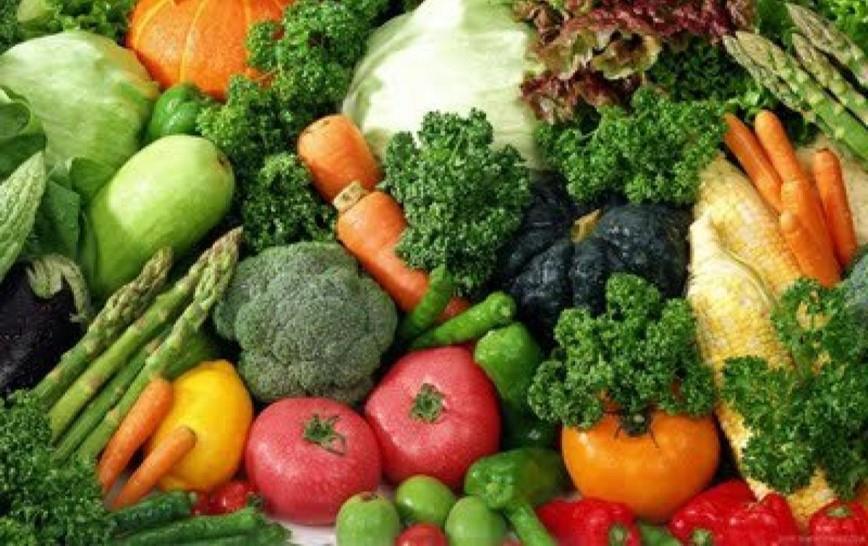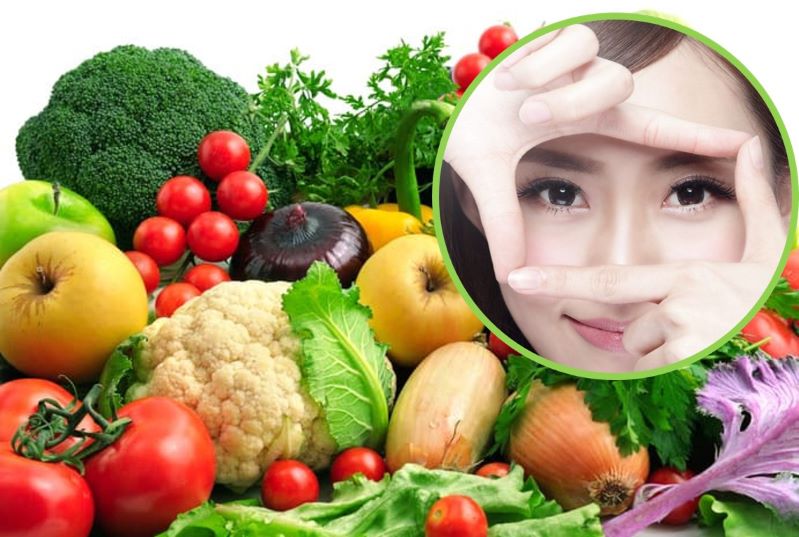Maintaining eye health is very important because the eyes are the window to the world, with our eyes we can see the colors of the world. More than that, Healthy eyes also support us in carrying out our activities well and freely, while sore eyes will hinder activity, especially if the disease causes severe visual impairment or even blindness. Considering its very vital function, It is not an exaggeration that we should try to keep it healthy throughout our lives.
One step to maintain eye health is to consume nutrients that are useful for eye health. At the moment, Research into nutrition that can help prevent eye disease continues to be carried out. Scientists continue to study foods that may help prevent some eye diseases, considering that eye disease is the main cause of disability in various countries.
9 Important Nutrients for Eye Health

Vitamin A/ Beta-Carotene
This substance is the most important nutrient for eye health. Vitamin A deficiency can cause night blindness, xerophthalmia or dry eyes, corneal ulcer, and swollen eyelids. Untreated xerophthalmia can lead to vision loss, namely blindness. In developing countries, Vitamin A deficiency is one of the most common causes of blindness. Vitamin A can also prevent cataracts and blindness associated with macular degeneration. Half a carrot per day is enough to meet the recommended daily dose of vitamin A.
Based on US RDA (recommended daily needs), Vitamin A requirements for older men 11 years and above is 1.000 retionol equivalents (RE), while for older women 11 years and above is 800 RE. Vitamin A is also measured in international units (IU). 1 RE is the same as 10 IU for plant products and is equal to 3,3 IU for animal products. This dose is equivalent to half a carrot for a day's intake. Other foods rich in vitamin A are: cod fish oil, sweet potato, liver and butternut squash.
Vitamin C
This water-soluble vitamin is a component of tissue in the body that is very important for the eyes. As an antioxidant, Vitamin C also protects body cells from damage caused by free radicals. Thus, This vitamin helps protect against eye diseases. Pawpaw, orange, grape juice, strawberry, green paprica, tomato, and cauliflower is a type of food that contains this vitamin.
Vitamin E
This fat-soluble vitamin, also known as alpha tocopherol, is an antioxidant that is very useful for protecting eye health from cataracts and age-related macular degeneration.. The source of vitamin E is: almond nut, sunflower oil and corn oil, please, hazelnut, pistachios and other nuts.
Carotenoids
Carotene is related to natural plant pigments and helps provide color to vegetables and fruit. Lutein and zeaxanthin are two types of carotenoids that can protect the eyes from deterioration and disease. Lutein can be found in foods such as spinach, lettuce, kol, broccoli, green beans and many yellow and orange vegetables and fruit, while zeaxanthin can be found in orange peppers, corn and some green vegetables.
Iron
Iron is an important mineral found in every cell of the body, Iron helps the body's health, especially the eyes, and can be found in various types of food such as red meat, chicken, oyster, beans, yoghurt, milk, cereals and nuts- nuts. Bioflavonoids (Flavonoids) can prevent cataracts and macular degeneration by inhibiting the action of the aldose reductase enzyme which plays a role in cataract formation. Flavonoids can also protect blood vessels in the eyes, so that it will automatically strengthen the cornea and retina of the eye. Sources of bioflavonoids are: teh, bilberry, blueberry, cherry, nuts, and soy products.
Omega Fatty Acids 3
Omega fatty acids 3 can help prevent macular degeneration and dry eyes. Food sources rich in this nutrient are: fish from the cold sea, like: salmon, puffer fish, and herring, fish oil, canary, and flaxseed.
Selenium
Selenium along with carotenoids, vitamins C and E may reduce the risk of developing macular degeneration. Selenium-rich food sources are: seafood, Brazil nuts, Brown rice, and noodles. Recommended daily requirement of selenium (RDA) is: 55 mcg, while for pregnant and breastfeeding women each is 60 mcg 70 mcg.
Vitamin D
Vitamin D can be obtained by consuming salmon, sardines, mackerel, or milk, while the best source of vitamin D is sunlight.
Seng
Zinc helps reduce the risk of night blindness, while helping to reduce the risk of macular degeneration. A source of zinc is shellfish, beef, crab, and turkey meat. The daily requirement for zinc is : 11mg for men, 8mg for women, 11 mg for pregnant women and 12 mg for breastfeeding women.
Experts recommend meeting the daily needs of these eye nutrients through natural foods, not from supplements, except when recommended by an ophthalmologist. In short, We can meet our needs for these nutrients by consuming them 5 until 9 servings of fruits and vegetables every day, 3 daily servings of grains and cereals, and two servings of fish or seafood every week. Green vegetables that you want to consume should not be cooked too well so that they do not lose their nutritional content.
It turns out, the advice of the parents was correct, that fruits and green vegetables are important foods for the eyes.
Therefore, if we care about eye health and want good vision until old age, Don't forget these two types of food in our daily menu.
We should also learn how to process fruit and vegetables so that important nutrients are not lost and can be absorbed by the body perfectly.
One thing to remember is, There is nothing instant in maintaining a healthy body, including eyes. So, fulfill nutrition for the eyes as early as possible, before we are late and regret losing our window to the world.
Apart from maintaining eye health, Caring for dental and oral health is also important to improve appearance and self-confidence


Glory be to God……Jazakallah Khoir Harighato Kamsia Mauleate Bujur Melala Thank you Uda Cayank